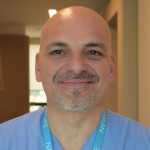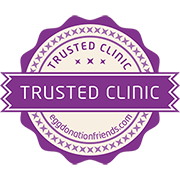Is folate better than folic acid when trying to become pregnant?
by Dimitrios Dovas, last updated 06 Oct 2020,
2 min read
Severe congenital defects of the brain and/or the spinal cord are called neural tube defects. Neural tube forms the early brain and spinal cord, and when it is not appropriately closed neural tube defects arise. Two of the most common types are anencephaly (defect of the brain) and spina bifida (defect of the spinal cord). Those conditions are usually diagnosed early in pregnancy.
Numerous studies have confirmed that if a woman consumes folic acid when trying to conceive and during early pregnancy, the risk of neural tube defects is significantly reduced. Since organogenesis is completed by the end of the first trimester, it is important that supplementation starts before a woman becomes pregnant.
The majority (but not all) of neural tube defects may be prevented if 400 mcg of folic acid is taken daily either as a supplement or in fortified foods such as breakfast cereals.
Folic acid is a B vitamin. It is the synthetic form of folate used in supplements or fortified foods. The natural folate can be found in foods such as green vegetables, fruits and beans. Although folate is essential for a healthy diet, it is generally accepted that it is very difficult for the majority of women to get their daily recommended amount through diet alone.
Other forms of folate found in supplements apart from folic acid, like the 5-methyltetrahydrofolate (5-MTHF) should not be confused with the natural folate found in food as their effectiveness in preventing neural tube defects has not been properly studied.
This is why the best way to ensure adequate levels of folate in women’s blood is through folic acid supplementation either in the form of supplements or through fortified foods.
For more information, please see the 2018 CDC review in the following link:
cdc.gov/ncbddd/folicacid/faqs/faqs-general-info.html

Dimitrios Dovas, MD, DFFP
Dimitrios is the Clinical Director of Newlife Center of Reproductive Medicine, in Thessaloniki Greece.











